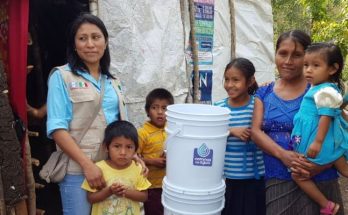By Paola Velasco
Changes in the US’s immigration and deportation policies have impacted individuals, their families, and the communities they are forced to leave behind. These policies have moved away from the goal of family reunification, and have the potential to harm US citizens, including minors, by separating families. Undocumented parents face enforced deportation. Twenty-six percent of children in the United States have at least one immigrant parent, which means that immigrant issues affect many children in the US. Immigration law regarding family separation, parental deportation, and detention is of great concern regarding how it affects their children.
Caminamos Juntos is a civil association (AC) that deals with the integration and escort needs of deported individuals and families, and is the only one of its kind in central Mexico. Deportation support centers are generally located on both borders. This AC in San Miguel de Allende reacts not only at the time of deportation, but to everything that follows as well.
Atencion spoke with Lorena Patiño, Director of Caminamos Juntos AC, who recently took office. She explained that this association is organized in four very important areas:
- Legal support. The vast majority of the time, those recently deported, especially children born in the US, do not have Mexican birth certificates, a CURP, or any documentation. Binational work must be done to regularize the individual’s legal situation. In many cases, deported children cannot even enter school due to lack of documents. This association is working on an efficient regularization model to save time.
- Labor support. This area is very important, since it allows migrants to generate resources. Advice is provided to migrants when they require it, as well as support to be able to carry out economic projects related to their trades and, of course, any entrepreneurial ideas they have.
- Community integration. This is a linkage program with local families so that migrants integrate into social activities that allow them to develop affective relationships. Many times, families or people who have gone through the same experience have a lot to share, which makes newcomers feel comfortable recounting their experiences.
- Psychological support. After going through the trauma and the consequences of deportation, therapy sessions with a specialist—ideally family sessions—are provided. Migrants generally experience a good deal of stress when they start over.
This coming September, Caminamos Juntos will celebrate four years of work. It hopes to hold a fundraising event in order to continue its actions.
Caminamos Juntos exists thanks to the support of volunteers, private donations, and international foundations. It appeals to the community for volunteers to teach Spanish, since many of the deported children and adolescents do not know how to speak the language.
For more information, call 461 318 7967, go to their website http://www.cjsma.org/ or send an email to contact.cjsma@gmail.com




